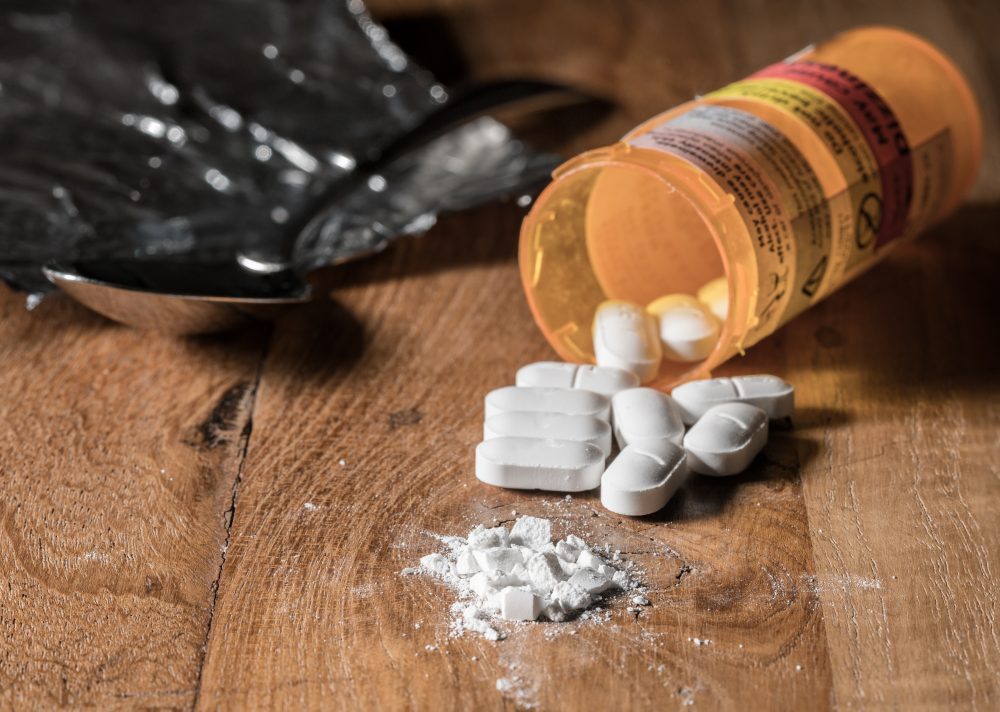“Yes, I have had a family member/friend deal with addiction and it gets serious once you know they can’t stop.”
Bethany, a student at the NYC iSchool, recalls her second-hand experience with addiction and the clear distinction between choice and disease.
From secondhand viewers to firsthand victims of addiction, it was believed by Leslie Jamison, “Drugs are a choice, to a point. The first time you use it is a choice. It is often after the first use that you find yourself craving the drug. You may think you can control your usage. However, once you become addicted, the brain changes are the catalyst behind the disease of addiction.”
The American author and essayist of many credited books including The Recovering discusses the complex issue of addiction as well as the emphasis around the word “choice.”
Ongoing Genetic and Scientific Aspects:
The ongoing issue of addiction and the matter in question of whether or not it is a choice or a disease has been highly debated among scientists, psychologists, writers, and especially the public. The thin line between choice and disease makes it very hard for individuals to clearly depict whether or not the use of substances is a choice or a disease as many fundamental key elements must be considered.
Addiction takes a toll on neurological factors and leads to colossal changes in the functions of the brain, while also increasing dopamine receptors, causing a feeling or satisfaction and joy.
The inner workings of the brain as well as genetics and enzymes have tremendously affected many substance abuse victims in large amounts, which has made it very difficult for people to quit and break the pattern of addiction.
As discussed in the article ‘Is Addiction a Disease or a Choice?,’ “The dopamine release from drugs and alcohol unlocks the floodgates, dousing your body in unnaturally high dopamine levels, which can lead to the following issues. Dependency, Lack of Response, Depression.”
The scientific aspect of addiction affects a person’s dopamine receptors messing with their daily functions and also affecting movement, emotions, and the reward system in the brain.
As stated in the article ‘Is Drug Addiction Genetic?,’ “Scientists have identified multiple genes associated with addiction, in general, as well as genes associated with addiction to specific substances…There’s often a disparity in how individuals respond to treatment. Part of that is because of genetics. Genes affect the numbers and types of receptors in the brain. Genes that code for cytochrome enzymes in the liver (CYP variants) can influence how quickly an individual metabolizes a drug, which influences how they respond to medications and other substances.”
Genetic factors also affect one’s tolerance to certain substances, making it harder to navigate adulthood with substances such as alcohol. It can affect your response to drugs and affect how patients react to medications and substances, which can vary the outcome of whether or not they develop a severe addiction.
The overall effects of substances have led to many severe neurological, psychological, and physical impacts to the substance users/victims. It has also interfered critically with process signals, neurotransmitters, genetics, and can have a long-term hinders on the proper function of the nervous systems.
National Issue:
This national issue has been ongoing for centuries. From the opium epidemic to the crack epidemic, one after another the epidemics regarding substances seem to occur throughout many generations.
The substances that have become so normalized and exerted have spread throughout centuries, which has led to many harsh punishments in which many people opposed and continued to break since the addiction to the substances became uncontrollable, similar to a disease.
In the book The Urg” by Carl E Fisher, he says, “However, as tobacco became more widely used across all social strata, it promoted intense fears and increasingly desperate attempts to control it. The Mughal emperor Jahanigir forbade all smoking… Russian, Japanese, and Chinese rulers all gave out harsh penalties for tobacco use. Sultan Murad IV of Ottoman Empire punished tobacco users in the 1620’s and 30’s with heavy fines, and occasionally, death-at one point executing twenty of his officers ‘with the severest torture.’ But no matter what, the drug rolled on, seemingly unstoppable” (26).
Acting like a disease, this shows even the earliest efforts to prevent tobacco use, and the responses of creating punishments/penalties as divergent as execution to stop the rate and usage of these substances, were so extreme out of desperation to terminate the addiction, yet the cycle of addiction continued even through the facade of agony and suffering to death.
Jamison claims, “I was surprised and humbled by how difficult it was for me to stop drinking–I’d always thought of myself as someone with strong willpower and determination, goal-oriented and ambitious, who’d always worked hard and tried to be “good” at what I did, and at first I thought that I could apply this same level of willpower to drinking: that I could “do it better” (only drink on certain days, only drink certain amounts) and then, when that seemed impossible, that I could stop doing it altogether…With alcohol, as with other addictive substances, there is absolutely a physiological component–it’s not just about “choosing” to stop, it’s about bringing your body back from dependance. That said, I do think that choice has a role to play; it’s not a doomed or futile prospect for someone who is dependent to come back from dependance. It’s about making choices toward care: toward medical care, recovery communities, and loving relationships that can offer support.”
Jamison reveals her experiences and grapples with the complexities of addiction. The thoughts of willpower and determination to “do it better” when it came to substances quickly overcame her as the recurring choices came back and took over her dependency which left her with the apprehensions of impossibility and beyond one’s control.
Jamison also points out excellent remarks about how majority of the time she couldn’t stop and kept yearning for the substances even after self-criticism and the knowledge of the murderous effects of substances.
The topic of addiction and the emphasis around the word “choice” has further commemorated the stigma towards addicts in which it is considered a moral failing rather than an uncontrollable disease.
This has led and is still leading to higher rates of failure in rehab and has given many people lost hope when trying to recover. This has also led to a profound increase of adults having ideas and stigma against these issues and topics.
As said by ‘The American Misunderstanding on Addiction Continues,“A recent report by the Pew Charitable Trusts indicates that around 50 percent of the population does not believe that addictions are diseases. The respondents emphasized free choice over factors like poverty, racism, hopelessness or biology.”
The stigma around addiction and the lack of consideration for key factors that play into addiction have increased by about 50% which is a significant amount, this kind of stigma and ignorance from people can cause lost hope for addicts and may overwhelm victims/users with emotions of shame, and isolation which can also lead to lack of understanding from family, friends, the public, as well as reluctance to ask for treatment.
Other types of stigma, such as self-stigma, can also be very detrimental to a patient’s self-confidence as well as their overweighting emotions filled with hopelessness as well as shame.
From the perspective of ‘Challenging drug and alcohol stigma’,“Self-stigma is when a person feels unworthy of help and results in people excluding themselves from services … .Stigma experienced by families can also lead to feelings of shame, guilt, anxiety or blame…Communities with problem substance use are also stigmatised. This can be the case when substance use is higher, or it’s just seen to be higher. This means whole communities can become defined by substance use. They are also defined by the ‘types of people’ who live there. This causes communities and local residents to feel cut off and isolated.”
Stigma has long-lasting impacts not only on victims and users themselves but to family and friends who are struggling with a family member’s addiction. As stated before communities may be faced with becoming outcased, criticized and disapproval from others.
Although stigma has been seen throughout most of the population, specifically within adults, there have been instances of others such as our youth who have opposing opinions and ideas for the ideals of addiction.
A 9th grade iSchool student Abigail recently started when asked about addiction and whether or not it is a choice or not has responded by saying ¨I think it is a disease, I just feel like it could be, because people use it a lot and can’t seem to stop even if it puts their life in danger. They ignore the consequences and it can harm other people…I think there are other factors that go into addiction such as mental illnesses. I also think trauma also has a big part in addiction and the use of drugs.”
The astounding response from the NYC iSchool student Abigail has also shown how stigma can be taught and reciprocated through youth and children, but that there are great opportunities to educate young students on these issues to tackle false accusations and information about addiction. Responses and ideas similar to Abigail’s can become beneficial for recovering addicts.
Social/Future issues with Substances & Addiction:
The impact of addiction as a disease and addiction have affected many individuals, and readers should care about the important issue because it affects many people daily, it perpetuates stereotypes and targets certain people of social class and race.
The issue of addiction goes way past whether or not it is a choice but from the root causes of it which are systemic racism, the harsh punishments, and the wide-reaching stigma around the topic itself.
According to the article “How Racism and Bias Influence Substance Use and Addiction Treatment’“As a National Institutes of Health–funded predoctoral fellow in psychology, Lee looked at societal attitudes toward heavy drinkers: she found that only white men were viewed with sympathy; those from other groups were assessed more harshly…She found experiences of exclusion and discrimination—from fears of unfair arrest to difficulties accessing health and education—left people feeling depressed and anxious.”
The harsh punishments, systemic racism, and worldwide stigma has connected hand in hand, influencing the public’s perception on addiction and have paved the way for people of color to become a ‘symbol’ as to why addiction is a “choice” and why we shouldn’t try it.
Ultimately, readers should care since younger generations of youth have been prone to start using substances such as drugs and alcohol while also becoming addicted to these substances.
From the article “Substance Use Among Youth.” “15% of high school students reported having ever used select illicit or injection drugs (i.e. cocaine, inhalants, heroin, methamphetamines, hallucinogens, or ecstasy…Although most youth are in good health, some youth are at an increased risk for behaviors that can lead to poor health outcomes, such as high-risk substance use. The majority of adults who meet the criteria for having a substance use disorder started using substances during their teen and young adult years.
More than 10 percent of teenagers have been prone to try addicting substances. The increased risk these teenagers may face, while using harsh substances most likely will have them become addicted more easily, carrying these addictions and the use of these substances to adulthood making it harder to navigate life without addiction and for recovery.
Other Perspectives:
For many in the article ‘Rethinking Addiction as a Chronic Brain Disease’,
“It’s difficult to hear people call addiction a disease, like cancer or progressive illnesses,” wrote Nadia, who lives in Minneapolis but asked that her last name be withheld to protect her family’s privacy. “My father chose drugs, time and time again.” This shows how family members have different opinions on whether addiction is a choice or a disease. For some it can even be hard, even to half the population and doctors/psychologists themselves.
As noted by the article ‘Is addiction a “brain disease”?,’ While others have also believed that “Clearly, there are people on the mild end of the spectrum who have the ability to choose to stop or cut back. For these people, when the rewards of not using outweigh those of using, they stop. Some people with a pattern of unhealthy drug or alcohol use that meets criteria for a diagnosis of substance use disorder may also “mature” out of it without formal treatment.”
The majority of the public still don’t understand the complex reasonings and key factors behind addiction and tend to overlook important issues such as biology, racism, etc.
This also shows how even a medical doctor and psychologists agree that while addiction can be uncontrollable at times, it is mainly a choice that shouldn’t be overlooked, just because some people have genetics or genes that can affect the probability of a person becoming addicted.
Although the majority of the population and even credible doctors and psychologists agree that addiction is certainly a choice to an extent there are many underlying factors to be considered.
By all counts, although addiction and the use of substances may be a choice in the factor of trying them, the overall effects of the substances itself relays effects of brain damage, and uncontrollable decisions to keep using substances have led addiction to act similarly to a disease.
As reported by the article ‘Is Addiction a Disease or Choice?’“Some people argue that it is a personal choice, and therefore anyone who is addicted to a substance has ended up there because of the lack of self-discipline or morality. Meanwhile others argue addiction is a disease, and as a result cannot be cured entirely or even resisted by discipline alone…Addiction is a complicated subject filled with debate between researchers and scientists from a variety of backgrounds, and these debates have only grown as the years progress. Despite the complexity of the situation however, new evidence reveals the truth of the matter. While an addiction may begin from an individual’s personal choice, addiction itself is a mental disease rather than a continued choice.”
While considering other outside factors, such as poverty, racism, genetics, family history, and more, the concluding status of addiction on whether or not it is a choice or a disease, is safe to say that although the first time using substances may be a choice, it develops into a disease in which choice is no longer a question.













